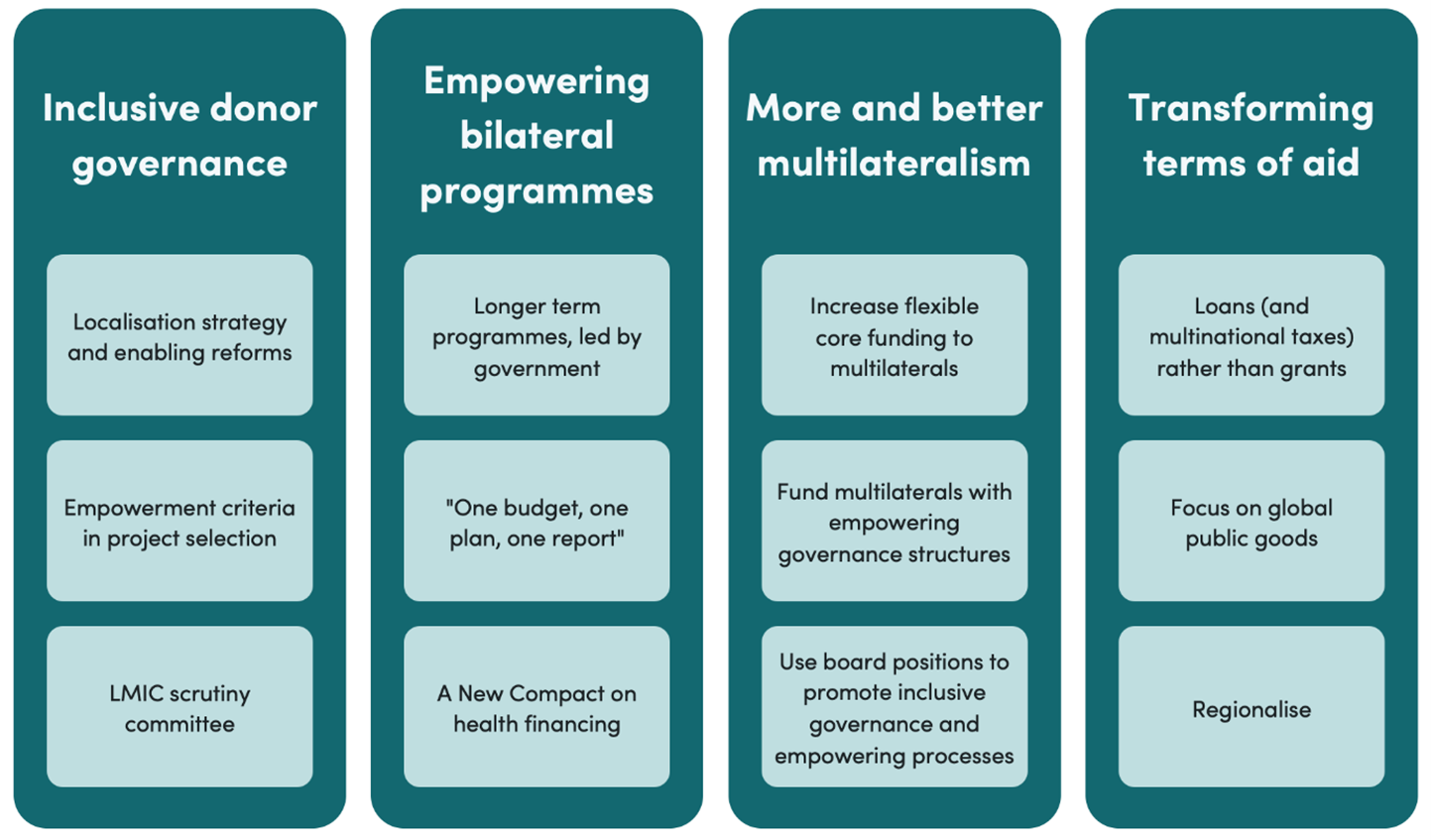In the UK, the Conservative Party is
leading soundly in the polls and appears likely headed to win elections sometime next spring. What would a David Cameron-led government mean for British development policy--and especially the future of DFID?We got a window into what may happen yesterday when we
hosted Andrew Mitchell, the shadow secretary of state for international development, ostensibly the man in line to take over DFID if there is indeed a change in government. Mitchell’s pithy and energetic speech was largely based on the party’s
“green paper” which lays out its own strategy to fight global poverty. The Tory plans include many elements that you would expect from the party of John Major and Margaret Thatcher: emphasis on taxpayer value, promotion of the private sector, and more reliance on the market. (My favorite line from the exec summary: “We bring a natural scepticism about government schemes.”). But here are my main take-aways, which include some surprises:
- Development policy is now mainstream and bipartisan in Britain. Mitchell was exceedingly positive about DFID and reiterated that his party has no plans to diminish its role or radically change its autonomy. (Unlike 1970 and 1979 when new Conservative governments demoted the aid agency and put it under the Foreign office.) He also explained that the party intends to keep the aid budget high, including the target of reaching 0.7% of national income by 2013. I think such aid targets are deeply flawed (see my paper with Michael Clemens on what’s wrong with 0.7%) but this pledge is an indicator of how strong the domestic British constituency for aid has become – and how different, still, from the United States.
- Democracy is likely to be more prominent. Responding to a question from the Carnegie Endowment’s Tom Carothers, Mitchell was very clear that the Tories will be less apologetic than Labour about promoting democracy. This seems likely to change the tenor of British engagement in places from Pakistan to Uganda (and hopefully in Zimbabwe).
- Britain will experiment more with aid innovations. Although Mitchell said the UK will continue to provide budget support for the better-performing recipients, there will be a much higher bar and a clearer link to outcomes. The party is a big fan already of Cash on Delivery Aid, see for example this 2-minute video from the Tory website. Their idea of allocating some aid funding to projects based on taxpayers online votes is also potentially interesting, at least as an indicator of public preferences.
All of this suggests that Britain, no matter who wins the next elections, is not about to discard its role as a leading edge in development thinking. And that developmentistas who might have been in a panic about a Cameron government should instead welcome an opportunity for fresh ideas. It's happened before: after all, who would have predicted that
George Bush would be the instigator of the biggest revival in U.S. development efforts in at least a generation?
CGD blog posts reflect the views of the authors, drawing on prior research and experience in their areas of expertise.
CGD is a nonpartisan, independent organization and does not take institutional positions.





